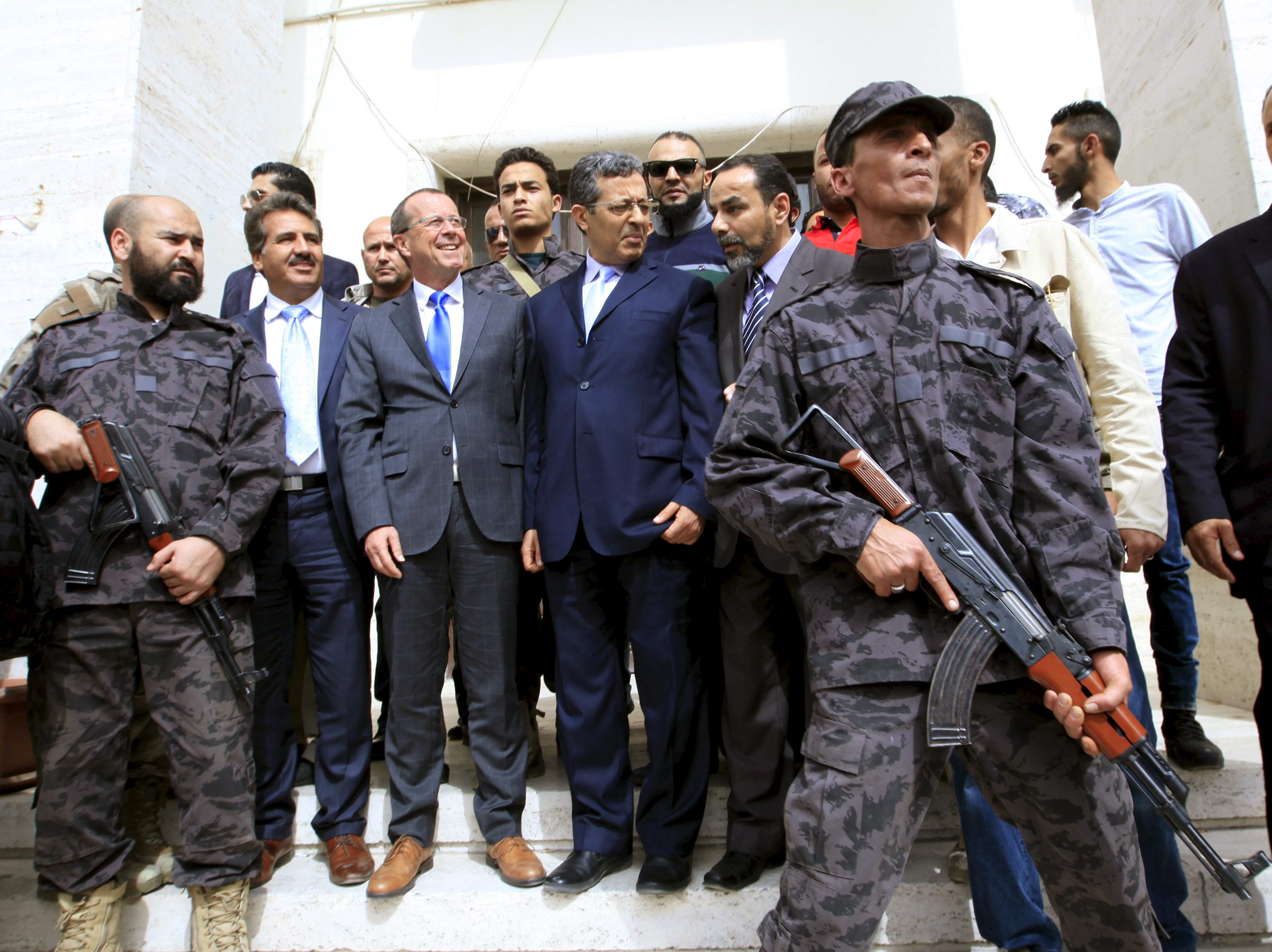
Though this newspaper kindly just published a day ago my piece on Libya, Farcical drama is creating a fluid situation in Libya (April 4)the incredibly fast pace of events requires an immediate update. Am grateful for this newspaper’s acceptance of this update.
The UN backed General National Accord (GNA) arrived in Tripoli in a motor launch one week ago and the current events are looking more like a coup. Astonishing but true to this observer.
The GNA doesn't in fact exist but the powers that be have stated that it does and that it consists of a 9-strong presidential council led by a technocrat prime minister Fayez Serraj, and with Tripoli airspace closed, they were conveyed last week to their capital city by Italian frigate, transferring at sea to a small rusty Libyan coastal patrol vessel to preserve the illusion that they were not being helped by western powers. But the GNA had fractured even before they were helped aboard the Italian vessel, with two of the 9 abruptly resigning, accusing the leadership of being too cosy with Tripoli militias.
Nevertheless, the so called GNA, now reduced to seven, arrived in the capital, choosing to set up office in the naval base, the only part of the capital judged safe from roaming militias.
A coup, in which a small number of people take control of a state, can be defined in many ways. On the one hand a coup can be a seizure of power through brute force. On the other, it can be the usurping of power without violence. This past week has seen what amounts to the latter unfold in Libya.
Without an election, or even the agreement of the elected parliament, marooned in the eastern city of Tobruk, Serraj has simply taken power, backed by Western States.
Unfortunately, Serraj has no power, beyond the confines of Tripoli naval base, and has instead deferred to the same extremist and Misrata militias of Libya Dawn who captured the city from the elected government two years ago.
Reinforcing this coup, seventy three members of the Tripoli parliament, the General National Council (GNC), agreed this week to reform themselves as the State Council, designed by the UN as part of the legislature of the Seraj government. However, most of the 73 were not elected to the GNC, as the UN rules stipulate, but are Libya Dawn acolytes added to the GNC after it captured Tripoli by force.
Compounding the confusion, the State Council then amended the UN rules, declaring they had the right to self-delcare the new government valid.
In one week, extremist-led Libya Dawn has taken effective control of the UN process, ensuring its militias control the capital and leaving Serraj marooned in the naval base.
The elected House of Representatives parliament in Tobruk, which the UN had insisted must agree the plan, has been discarded. UN officials were angry that the HOR failed to vote yes to the plan in previous months, and indeed failed to even meet to discuss it in recent weeks, even when the European Union sanctioned its president, Agila Saleh, for failing to do what the UN wanted.
The result is that the Libyan Political Agreement (LPA) the UN backed in December 17, 2015 has been torn up. Gone also is the LPA’s stipulation that new chiefs must be appointed to the Libyan Investment Authority (LIA) and the Central Bank of Libya (CBL) which hold tens of billions of dollars of foreign assets. Instead, the former chiefs, approved by Libya Dawn, have taken control.
The big winners are the Muslim Brotherhood and various factions from Misrata, the twin heads of Libya Dawn, who, despite losing in the 2014 elections, now have international recognition from Western powers, and through this control of Libya’s vast overseas assets.
It is a personal victory for Britain’s Libya envoy Jonathan Powell, who brokered the deal and boasts of his close links to the Brotherhood. In an e-mail, newly released, between Sidney Blumenthal and Hillary Clinton, Powell wrote about his abiity to use his success in negotiating between the IRA and the British govenrment twenty years ago to end terrorist campaigns. Powell further boasted that this model, being used in a number of countries through a “below radar” NGO, is workable given his close contacts, he claims, with British Intelligence. A very doubtful assertion.
But the lack of transparency over the Libya process, is coming into sharp focus. Panamagate is erupting, highlighting the lack of transparency over the world’s wealth, and it is just this lack of transparency that Powell is encouraging with Libya.
The final irony is that Russia and UAE have sounded alarm bells, reminding the West that the original agreement for Libya’s government required that the elected parliament agree to it. Both powers are standing by the elected HoR parliament, even as the West throws its weight behind the Tripoli militias. The breakup of Libya is imminent, along an east-west faultline, and the irony is that Western powers will have been the orchestrator. - Excliusive to Times of Oman